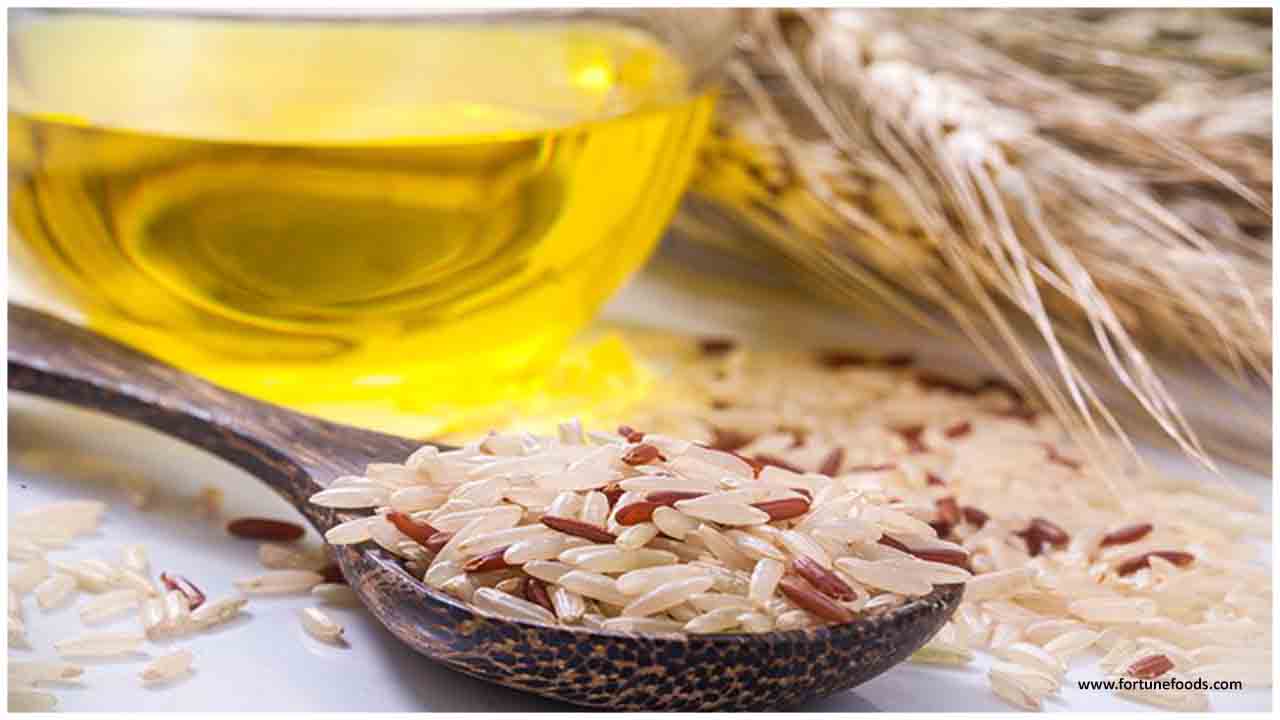Decent cooking oil doesn't simply add life to the most well-known nourishments, yet additionally assumes an urgent job in your wellbeing. It could influence your cholesterol levels, modify your metabolic condition, and in case you're utilizing the correct sort of oil, it could likewise diminish aggravation. That is the thing that makes it even more critical to pick the correct one. Over the most recent couple of years, ghee (explained spread) and refined oil have earned terrible notoriety because of the cholesterol and coronary illness alarm. For such wellbeing reasons, individuals have gotten more open to trying different things with new sorts of oil. On such assortment that has gradually been crawling up on wellbeing, diagrams are Rice Bran Oil.
Rice bran oil (also known as rice bran extract) is the oil extracted from the germ and inner husk of rice. Rice bran oil (RBO) is tenaciously believed to be a healthy vegetable oil in Asian countries. It exerts hypo-cholesterolemic activity which means cholesterol-lowering action, in relation to more commonly used vegetable oils and is characterized by a relatively high content of non-fatty acid components, some of which are known to have beneficial health effects.
Let’s see the benefits of Rice bran oil
- Cholesterol-lowering
Components specific for RBO such as gamma-oryzanol and tocotrienols could participate in its hypo-cholesterolemic effects. Rice bran oil contains a mixture of antioxidants and promotes cholesterol reduction beyond that of more unsaturated oils. Also significant is the relatively high fractions of tocopherols and tocotrienols, taken together as Vitamin E.
In addition, blending RBO with safflower oil, but not with sunflower oil, may magnify the hypocholesterolemic efficacy. This observation is of particular interest with regard to dietary intervention with RBO.
- Usage in cooking
An additional advantage of rice bran oil is certainly its nutritional benefits, which include a balance of fatty acids meeting AHA recommendations. Its taste and performance are complementary to salad, cooking, and frying applications as it is notable for its high smoke point of 213 °C (415 °F) and its mild flavor, making it suitable for high-temperature cooking methods.
- Phytosterols
Rice bran oil is also rich in other phytosterols which may provide health benefits. A paper review said that phytonutrients from rice bran that have shown promising disease-preventing and health-related benefits in experimental research studies. Candidate products studied and under investigation include inositol and related compounds, inositol hexaphosphate (IP6 or phytate), rice oil, ferulic acid, gamma-oryzanol, plant sterols, tocotrienols and RICEO, a new rice-bran-derived product. Diseases in which preventive and/or nutraceutical effects have been detected include cancer, hyperlipidemia, fatty liver, hypercalciuria, kidney stones, and heart disease. In addition, rice-bran products may have potential applications as nutritional ingredients in the context of their utility in functional foods.
- Reduces total plasma cholesterol and triglyceride
Another Literature review shows that rice bran oil and its active constituents improve blood cholesterol by reducing total plasma cholesterol and triglyceride, and increasing the proportion of HDL cholesterol. Results of an animal study indicated a 42 percent decrease in total cholesterol with a 62 percent drop in LDL cholesterol when researchers supplemented test subjects' diets with fractionated vitamin E obtained from rice bran oil.
- Antioxidant stability
Studies have shown that the antioxidant stability in rice bran oil remains almost constant even when heated at frying temperatures. The study of thermal degradation and antioxidant stability in the oil is carried out by heating the oil to the frying temperature up to 250°C for 0.5, 1, 1.5, 2hrs. The density of rice bran oil is found to be constant throughout the time of heating illustrates there are no molecular changes due to antioxidant activity in the oil. The oxidative stability of rice bran oil was equivalent to or better than soybean, corn canola, cottonseed, and safflower oil in a model system that simulated deep-frying conditions.
- Good for the Skin
Squalene is a compound present in Rice Bran Oil which is easily absorbed by the skin and keeps it soft, supple and smooth.
- Less Oily
Rice bran oil is less viscous so the good news is that it does not stick to food. It tends to feel less oily on the tongue and absorbs less oil which is why you also need to be careful of the quantity you use.
- Heart Friendly
Indians are genetically prone to heart disease and therefore one should take precautions to have a healthy heart. Rice bran oil is known as the heart-friendly oil as it helps lower cholesterol because it contains the right amount of oryzanol which is an antioxidant. It helps decrease cholesterol absorption and increase cholesterol.
No matter how good the oil is, be sure to use them in minimal quantities as they give a large amount of calories even in small portions.
Always remember, anything good in excess is ultimately bad!

 Indians are genetically prone to heart disease and therefore one should take precautions to have a healthy heart.
Indians are genetically prone to heart disease and therefore one should take precautions to have a healthy heart.



















.jpeg)










